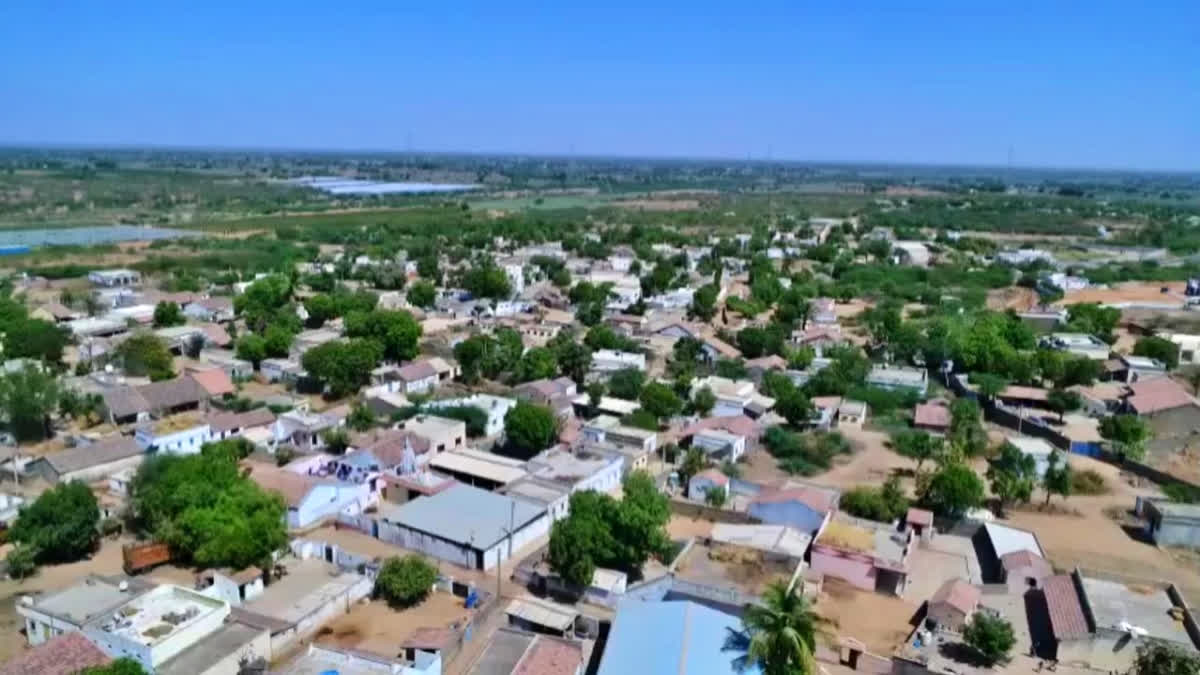Gandhinagar (Gujarat): A typical Indian village speaks of dusty roads, mud houses, and most of them are struggling to have the basic amenities like running water and proper drainage. However, in the Sabarkantha district of Gujarat, lies Punsari - a village of 6,000 people that challenges this stereotype. Punsari has been labelled a "model village" by the state government, offering the conveniences of a city while preserving the spirit of a village.
The former headman, Himanshu Patel, takes pride in the village's infrastructure, which provides essential services such as clean water, 24-hour electricity, and internet connectivity. This is not the only village that is leading the way in sustainability in Gujarat. Modhera in the Mehsana district was recently declared India's first 24x7 solar-powered village, while Kunariya in Kachchh is reducing carbon emissions as its primary objective. The state of Gujarat is home to six such villages that could make any city with modern facilities blush.
Punsari, also known as a digital village, has attracted 138 representatives from 60 countries. Himanshu Patel, the former sarpanch of the village, transformed it into a modern village. In 2011, Punsari village was awarded as the best village panchayat, and in 2015, Himanshu Patel was awarded as the best sarpanch in the country.
The village has embraced modernity in all aspects from Anganwadi to secondary education. It has CCTV cameras, a water system from the RO plant, clean and beautiful concrete roads, and WiFi facilities. Education given to children through digital technology is the specialty of this village. Nutritious food is provided in the school, and every classroom has CCTV along with AC. Multimedia on the digital board is used to impart enjoyable education.
Waterproof speakers have been installed in the village, and devotional music is played from them. The Sarpanch regularly gives basic instructions to the villagers through the speaker. Every house has a computer, mobile, and WiFi facility, and there is no theft due to 24-hour CCTV surveillance.
If Punsari embodies the spirit of Modi’s ‘Digital India’ then Jethipura dishes out a design that can curve out a political niche of an idealistic future India. Jethipura in the Sabarkantha district of Gujarat, with a population of just 1300 people, is known as the Samaras village where no Gram Panchayat elections were held in the last 15 years. The village, despite having no political dominance and is managed by a sarpanch elected by consensus, has received two national awards and several other accolades.
Despite having no sanitation worker, the village is spotlessly clean, and there is no litter anywhere. The village sarpanch, Bhatt Ehsan Ali, attributes this to the availability of clean RO water through tokens, a modern library, a good drainage system, and streetlights everywhere. The school in the village is of A grade, and patients can receive expert medical care for just Rs 50. Additionally, 100% of the people in the village use the toilet, and 3200 trees have been planted to protect the environment.
“The village school is a model for others to emulate. It has all modern education facilities, including internet wifi and projectors. Good nutrition is also provided to students, and no child in the village is malnourished. The school walls are adorned with colourful murals that make learning a pleasant experience,” Bhatt said.
If Jethipura shows the dream of an ideal country, Afwa is an abode for the Non-resident Indians showcasing the strength of Indian villages abroad. Located in Surat district of Gujarat, India, Afwa houses more than 80 percent NRI population in the village. Renowned for being an ideal village, Afwa has a rich history and was awarded as an ideal village in the joint session of Gujarat-Maharashtra Assembly in 1975. The village has an underground sewerage system, which was implemented in 1975.
According to former sarpanch Lallubhai, Patel said,“The village has a completely underground wiring system, with no visible electrical, cable TV, or phone wires. The concept of a ring road has also been implemented, which prevents heavy vehicles from entering the village, thus reducing pollution and road damage”.
“The village's farming is done on a cooperative basis by the people living in the village. The farming facilities are provided through three cooperative societies, and the irrigation system is also done on a cooperative basis”, Kamlesh Patel, the founder and president of Piet Mandal said.
The village is inhabited by Patidars, Halpatis, and Mahavanshi communities, who stay abroad but come back to the village in November and December. During this time, they discuss the village's progress and decide to bring more modern facilities to the village, ensuring continuous development.
Bhimasar
